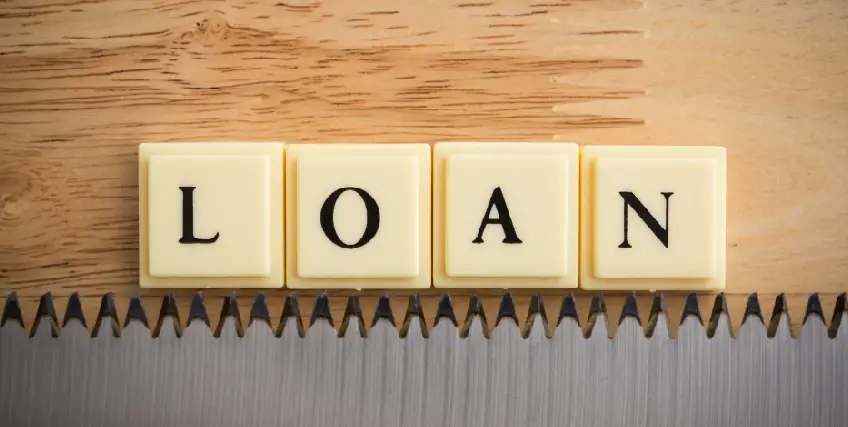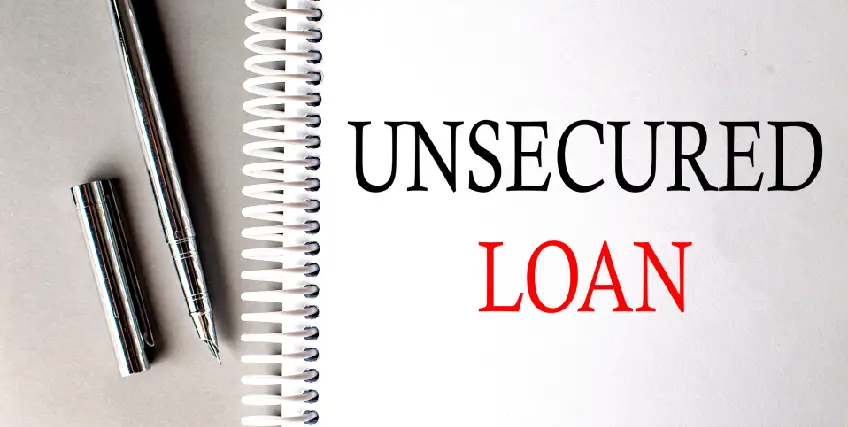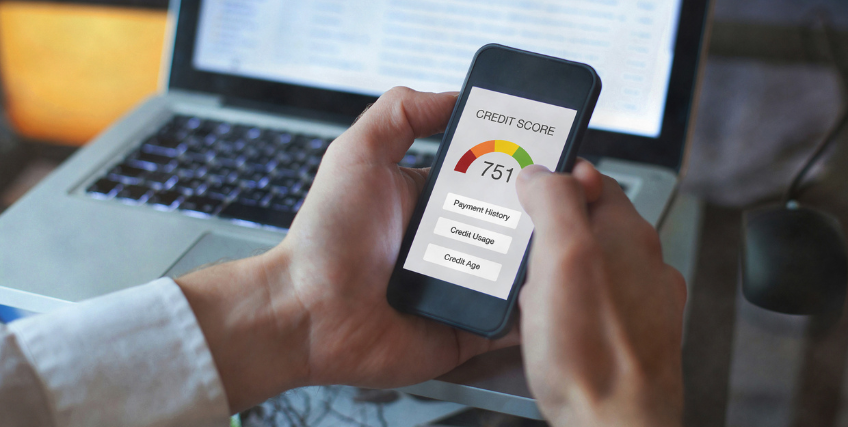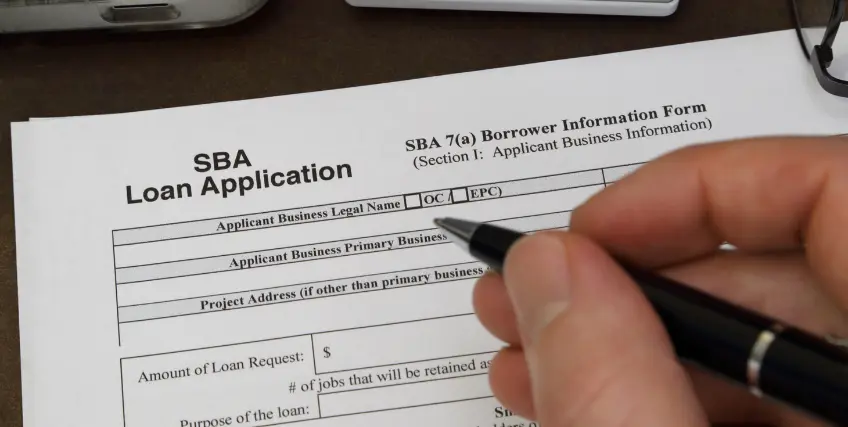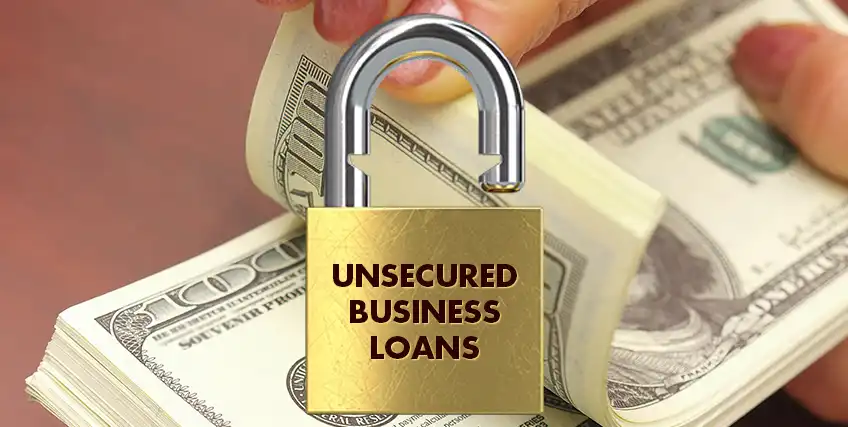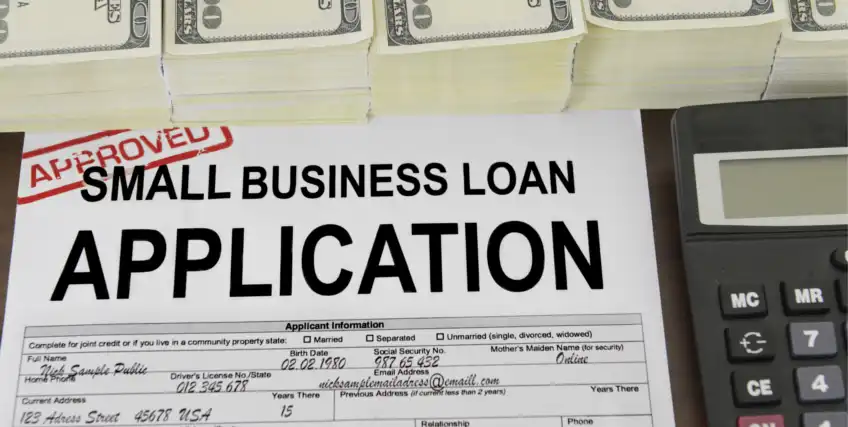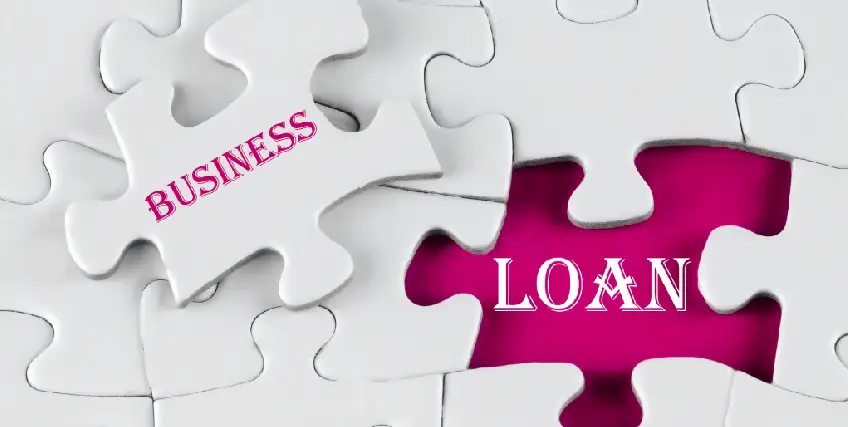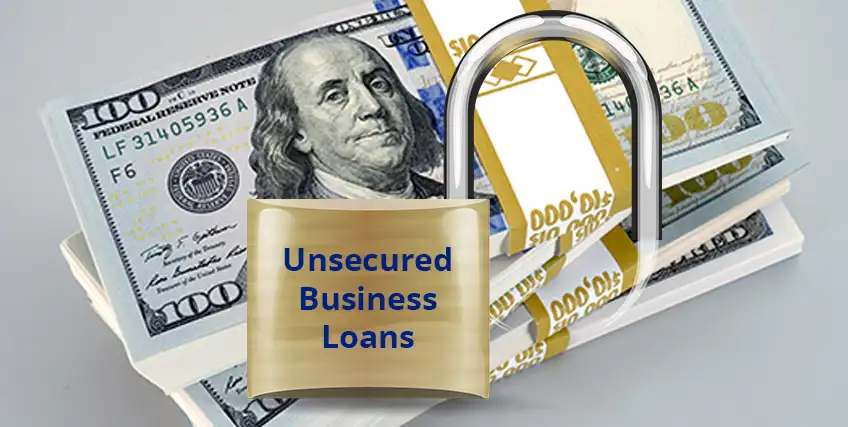According to the U.S. Small Business Administration (SBA), approximately 73% of small businesses make use of outside financing. It is also estimated that small business borrowing from banks alone totaled $600 billion, with an almost equal amount ($593 billion) provided by finance companies and private investors.Many of these loans are provided as unsecured loans to small business owners, which essentially act on the faith and credit of the borrower. Business owners can benefit greatly from this kind of lending, but there are always dangers to going beyond what a particular product is designed to do. We'll break down how unsecured loans work, and why they could be a great choice for you and your business if handled the right way.
A Brief Discussion About Unsecured Loans
Taking an unsecured loan with no collateral can make all the difference in the future of your company, as it gives you the capital you need to grow your business. If you're looking to purchase new equipment or expand your business, an extra source of capital can make these changes a lot more viable.
- While the borrower may not need to pledge company assets to secure this type of financing, lenders will usually ask for a personal guarantee from the borrower. This means that the lender can seize your personal assets in the event of default.
- Since these loans are not secured by collateral, they generally will carry a higher rate of interest compared to a secured loan.
- Loan amounts tend to be lower.
- Unsecured business loans usually require the borrower to have excellent credit.
The bottom line? Almost all businesses need capital to grow, and whether it's a corporate bond, or line of credit, unsecured loans can offer you the capital you need to help your business succeed.
-
Why Unsecured Business Loans Are Difficult to Get: Lenders Simply Need the Security of Collateral
It's a hard fact of being an entrepreneur that the vast majority of new businesses fail (80%) within the first two years. That failure rate makes lending a very risky proposition and lenders are well aware of the potential of default.
To illustrate the issue more clearly let's say that 10 people came to you and asked you to loan them $10,000 each, but there was a good chance that only 2 of those borrowers would repay you. If you gave each of them 10,000 you would have loaned $100,000 in total and you were only expected to be paid-back $20,000, would you do it? Of course not, that would not make sense because there is a high probability you would lose $80,000.
Now let's say that each of those people pledged assets (like a car, equipment or stocks) worth at least $10,000 (collateral may need to be a value in excess of the loan amount) as a condition for receiving that $10,000 loan. If those same eight borrowers default, you will be able to sell their collateral to satisfy the unpaid loan.
-
Small Business Loans from Banks are a Challenge
After the financial crisis of 2008, banks imposed strict requirements on business lending. As a result, by 2014 default rates on small business loans reached all-time lows of 2%. The reality is that business lending during this period slowed to a trickle and only the most highly-qualified applicants were granted credit.
According to the 2016 SBA Report on Small Business Finance:
The Kauffman Foundation found that nearly 20% of credit applicants in their business survey were denied. When businesses do receive new credit, they often do not receive the full amount applied for. According to the Federal Reserve, 82% of small employer firms were approved for financing, but only 50% received the full amount requested. Further, businesses are often discouraged from applying for additional credit due to an expectation that they will be turned down. The Federal Reserve found that 16% of small businesses felt discouraged from seeking additional credit or financing. Minority and women-owned businesses are disproportionately more likely to be in this discouraged group than their nonminority or male counterparts.
Is an Unsecured Business Loan Right For Your Company?How Companies Fund Business Growth
In seeking business financing for your company, it's helpful to understand how the majority of small businesses in the U.S. go about it.
Top 3 Sources of Expansion Capital (%)

According to the US Census Bureau and the SBA, only 5% of companies used a bank loan for expanding their business, about the same percentage (5%) used their personal credit card to fund their business. Alarmingly, 57% of companies choose not to expand their business because they either did not apply for credit or were denied credit. Most business owners used personal savings to fund their businesses.
The Biz2Credit Small Business Lending Index (SBLI) is a monthly report that tracks business lending activity. According to the SBLI, banks are still the leading source of business loans to small companies (for loans under $1 million). This report provides an analysis of the activity of the top lending sources.
Review of the Benefits and Disadvantages of Unsecured Business Loans
Benefits
- Access to cash
- No collateral requirements
Disadvantages
- Higher interest rates
- Personal guarantee
- Lower loan amounts
- Requires excellent credit
Applying for an unsecured business loan may be the only alternative for some business owners to finance expansion or business operations. However, it has limitations and as we have seen, it is rarely "unsecured" because most lenders will require a personal guarantee.
And, like a merchant cash advance, an unsecured business loan usually carries a higher rate of interest than other loan types.
Use Common Sense When Applying for an Unsecured Business Loan
A truly "unsecured business loan" is virtually non-existent.
The lending landscape can be confusing for business owners and there are undoubtedly bad actors in the loan business. Using some common sense, you can avoid getting caught by a damaging debt with exorbitant interest rates and risking losing your business or personal assets.
If you are offered an unsecured loan that looks too good to be true, it probably is. Here's what you should look for when evaluating an unsecured loan:
- What is the total interest rate? This is the annual percentage rate (APR)?
- Does the loan require a personal guarantee?
- Read the fine print! It is important to read and understand the entire document.
- Get several offers, shop around, rates can vary widely from lender-to-lender.
- Look for the terms "UCC" or "Blanket Lien" in the fine print and understand the implications.
- Check the reputation of the lender.
Unsecured Business Loan Articles
Common Mistakes to Avoid When Applying for Unsecured Loans Online
With the rise of small businesses in today’s fast-moving world, there are many small business owners encountering difficulties
How to Qualify for the Best Unsecured Loans Without Collateral
As a business owner, securing funding can be one of the most important decisions you make. Whether it’s for home improvement projects
Unsecured Business Loan vs. Credit Cards Which Is Better for Your Business
Credit card processing allows businesses to accept payments from customers using credit and debit cards.
How to Get an Unsecured Business Loan?
Whether you need to improve your cash flow or you’re ready to grow your business, getting outside funding can be a solution to your problem.
Age Limits for Unsecured Loans: What You Need to Know
Unsecured personal loans are one of the most sought-after financial products, offering a means of borrowing money without the need to provide collateral.
Consequences of Not Paying Back an Unsecured Business Loan: What Borrowers Need to Know
Business loans provide entrepreneurs with the financing necessary to start, grow, or acquire a business and cover all of their related expenses along the way.
Top Fintech Trends Transforming Unsecured Business Lending
Financial technology or fintech is transforming the unsecured lending landscape. According to the Federal Deposit Insurance Corporation (FDIC )
How Much Can You Borrow with an Unsecured Business Loan? Key Factors Explained
The cycle of business is full of ebbs and flows. To keep everything running smoothly in the down times, you might need financing to help with cash flow
Is a small business loan from a bank secured or unsecured
Many small businesses will eventually need an influx of capital. Whether it’s to take advantage of a business opportunity, invest in growth
5 Signs Your Business Is Ready for an Unsecured Business Loan
Being a small business owner means constantly juggling day-to-day operations and long-term goals. With so much going on in your immediate timeline
Different Ways to Borrow Unsecured Business Loans After Retirement
For some people, retirement is a chance to catch up on their reading, travel the world, and play a little golf. For others, it’s an opportunity
What happens if you default on an unsecured business loan
Many small businesses seek out financing to fuel growth or navigate financial challenges. For many entrepreneurs, business loans can be a
Unsecured Business Loans for Gig Economy Entrepreneurs: A New Frontier
Thanks to the convenience and simplicity of online lending, many small business owners are now getting a business
Credit Scores and Unsecured Business Lending
A good credit score is one of the most important criteria when a small business owner seeks business financing. Especially when it comes to unsecured small business loans
8 Compelling Reasons to Choose an Unsecured Business Loan
There are pros and cons of every financial product, and unsecured business loans are no different.
Top 7 Industries That May Benefit from Unsecured Business Loans in 2025
While there are many benefits to unsecured business loans, these types of loans aren’t right for every business or situation.
A Step-by-Step Guide to Qualify for an SBA Unsecured Business Loan
Unsecured small business loans are lending facilities that don’t require collateral. While secured business loans require a borrower to provide
How SBA Unsecured Business Loan Supports Small Businesses During Economic Challenges
As a small business owner, you put your blood, sweat, and tears into what you built. The journey is rewarding, but it’s not without major risks.
5 Benefits of Unsecured Business Loans
Unsecured business loans can help small business owners access funding without putting any collateral on the line.
Manage Debt for Your Small Business: Debt Consolidation vs. Refinancing
Business owners consolidate business debt for several reasons, not simply for financial relief. Some businesses use debt consolidation
Unsecured Business Loans: Busting Myths and Uncovering Hidden Truths
Whether you’re trying to take advantage of an opportunity or experiencing a seasonal slowdown, business owners need money from time to time.
6 Tips to Get Approved for Unsecured Business Funding
If you’re looking to get your startup or small business off the ground, you might not have the business assets to swing it.
Calculating Your Debt Service Coverage Ratio
When applying for a small business loan, you’ve probably heard the terms “debt service coverage ratio” and “debt to income ratio.”
Understand the impact of an unsecured personal guarantee on a business loan
Loans are a great financial tool for small business owners wanting to start or grow a business.
Four Steps to Understanding Unsecured Business Loans
Many people think of business loans in the more traditional sense: A company needs money for a specific reason
FAQs for Unsecured Loans
Is a small business loan secured or unsecured?
Secured loans: Require collateral to submit against the loan. It can offer a low interest rate as the risk to the lender is low. It is beneficial for businesses that need better credit scores.
Unsecured loans: They don't require collateral. It has a high interest rate, as the lender has risk. It is the best option for businesses that don't want to put their assets at risk.
What is an unsecured business loan?
How to get unsecured business loan?
Check Your Credit Personal and Business Credit: A strong credit score improves your chances of qualifying for favorable rates and terms. Review both your personal and business credit reports and address any discrepancies.
Evaluate Your Business Finances Financial Health: Assess key financial documents, such as income statements, cash flow projections, and balance sheets, to understand your business's overall financial stability.
Determine Your Loan Needs Loan Amount: Calculate the exact amount required to meet your business needs, ensuring you borrow only what is necessary to avoid overleveraging.
Compare Lenders and Prequalify Shop Around: Explore options from banks, online lenders, and credit unions to compare interest rates, terms, and repayment structures. Prequalification: Many lenders offer prequalification tools that allow you to check eligibility without impacting your credit score.
Gather Required Documentation Prepare Financial Records: Commonly requested documents include: Tax returns, Bank statements, Business licenses , Personal identification
Consider Flexible Options Business Line of Credit: If your business requires ongoing access to funds, a line of credit may be a better option. You'll only pay interest on the amount you use.
Understand Personal Guarantee Requirements Liability: Many unsecured loans require a personal guarantee, which holds you personally accountable for repayment if your business cannot meet its obligations. By thoroughly preparing and exploring multiple options, you can find an unsecured business loan that aligns with your business goals and financial circumstances.
What happens if you default on an unsecured business loan?
Legal action: There is a possibility that the lender will sue you for not repaying.
Personal assets: The lender can seize your assets like bank accounts, real estate, and vehicles.
Credit score: Your credit and personal score will have a negative impact.
Collections: The account will be sent to collections, which will result in calls, letters, and other attempts to contact you.
Fees and court costs: You may be responsible for additional fees and court costs.
Acceleration clause: The lender can trigger an acceleration clause against you to repay the remaining loan amount.
Confession of judgment: You may be asked to sign a confession of judgment waiving your right to defend yourself in court. If you have a situation where you can't repay, then you should explain the situation to your lender beforehand. They may offer you to pay a partial payment and extend your due date.
Is a small business loan from a bank secured or unsecured?
Secured loans To back the loan, collaterals like equipment, real estate, or inventory are required. These also have a low interest rate and flexible terms.
Unsecured loans These loans don't ask you to submit any collateral; instead, they rely on the creditworthiness of the borrower. They also come with high interest rates. Here are some other differences between secured and unsecured loans:
Loan amount: Secured loans generally provide higher loan amounts.
Repayment tenure: Secured loans generally have longer repayment tenures.
Default: If you default on a secured loan, the lender can seize the collateral. To collect on an unsecured loan, the lender should initiate a lawsuit.
Eligibility: Secured loans can be provided to borrowers with low credit scores or minimal credit history, whereas unsecured loans demand for a higher credit score.
Frequent searches leading to this page
Term Loans are made by Itria Ventures LLC or Cross River Bank, Member FDIC. This is not a deposit product. California residents: Itria Ventures LLC is licensed by the Department of Financial Protection and Innovation. Loans are made or arranged pursuant to California Financing Law License # 60DBO-35839






